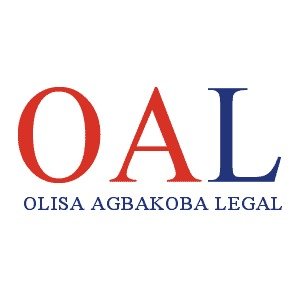Best Antitrust Litigation Lawyers in Apapa
Share your needs with us, get contacted by law firms.
Free. Takes 2 min.
List of the best lawyers in Apapa, Nigeria
About Antitrust Litigation Law in Apapa, Nigeria
Antitrust litigation in Apapa, Nigeria, deals with legal disputes related to anti-competitive practices such as price fixing, market allocation, abuse of dominant position, and monopolistic behavior among businesses. As one of Nigeria’s busiest commercial hubs, especially for ports and logistics, Apapa frequently witnesses high-stakes competition among companies. Nigerian antitrust laws are designed to maintain a fair competition framework, protect consumer interests, and foster economic growth by discouraging unfair business practices. Litigation may arise when businesses or individuals believe there have been violations of these competition rules, leading to courtroom processes to resolve alleged breaches or seek remedies.
Why You May Need a Lawyer
Antitrust litigation is complex and usually requires specialized legal expertise. You may need a lawyer in situations such as:
- You suspect a competitor of collusion or price fixing that damages your business.
- Your company is accused of abusing a dominant position or other anti-competitive conduct.
- You become subject to investigation by regulatory authorities like the Federal Competition and Consumer Protection Commission (FCCPC).
- You are involved in a merger or acquisition that may raise competition concerns.
- You want to file a complaint about restrictive trade practices in your industry.
- A contract you signed includes potentially anti-competitive clauses.
Legal counsel can help you understand your rights and responsibilities, respond to regulatory investigations, prepare a strong litigation strategy, or negotiate settlements when necessary.
Local Laws Overview
The principal law governing antitrust matters in Nigeria is the Federal Competition and Consumer Protection Act (FCCPA) of 2019. The FCCPA applies across Nigeria, including Apapa, and covers a wide range of anti-competitive practices. Key aspects include:
- Prohibition of Restrictive Agreements: The FCCPA prohibits agreements that prevent, restrict, or distort competition, such as price fixing and market division arrangements.
- Control of Abuse of Dominance: Companies are barred from abusing a dominant market position to the detriment of competitors or consumers.
- Merger Control: Companies must seek regulatory approval for mergers and acquisitions that may lessen competition in any market segment.
- Enforcement and Penalties: Violations can result in fines, damages, or other corrective measures imposed by courts or regulatory authorities.
- Role of the FCCPC: The Federal Competition and Consumer Protection Commission is the main body responsible for investigating and enforcing competition laws in Nigeria.
In Apapa, these laws are particularly relevant in shipping, logistics, and trade, given the high volume of business activities.
Frequently Asked Questions
What is antitrust litigation?
Antitrust litigation refers to legal proceedings related to alleged violations of competition laws, such as price fixing, monopolies, and other anti-competitive practices that harm the market.
Who enforces antitrust laws in Apapa, Nigeria?
The Federal Competition and Consumer Protection Commission (FCCPC) is the primary regulator responsible for enforcing antitrust and competition laws in Apapa and throughout Nigeria.
What are examples of anti-competitive practices?
Examples include price fixing between competitors, bid rigging, market sharing, refusal to supply goods to competitors, and abuse of a dominant market position.
How can a business defend itself against antitrust allegations?
A business can defend itself by providing evidence that its conduct does not have an anti-competitive purpose or effect, by showing its actions were justified, or by negotiating settlements. Legal representation is often critical.
Can individuals bring antitrust cases in Nigeria?
Yes, individuals or businesses affected by an anti-competitive practice can bring complaints or initiate civil actions for damages or other remedies.
What penalties are attached to breaching antitrust laws?
Penalties may include substantial fines, orders to cease certain practices, reversal of anti-competitive transactions, and in serious cases, imprisonment of responsible individuals.
Do I need approval for mergers and acquisitions?
Yes. Mergers, acquisitions, and certain business combinations that may lessen competition require prior approval from the FCCPC.
Are foreign companies subject to Nigerian antitrust laws in Apapa?
Yes. Foreign companies operating in Nigeria or engaging in transactions that affect the Nigerian market are subject to the country’s competition laws.
How long does antitrust litigation typically take?
The duration depends on the complexity of the case, the court’s schedule, and the willingness of parties to settle. Some cases resolve in months, while others may take several years.
Can I settle an antitrust case out of court?
Yes. Parties can negotiate settlements out of court, sometimes under the supervision or approval of the regulatory authority or the court, depending on the case.
Additional Resources
For more assistance or information on antitrust litigation in Apapa, you can reach out to:
- Federal Competition and Consumer Protection Commission (FCCPC): The main regulator for competition and consumer protection matters in Nigeria.
- Nigerian Bar Association (NBA) - Apapa Branch: Offers local lawyer referrals and professional guidance.
- Lagos State Ministry of Justice: Can provide public legal information and resources.
- Court Registries in Lagos State: For information on ongoing litigation or court processes.
Next Steps
If you believe you need legal assistance with an antitrust issue in Apapa, take the following steps:
- Collect all relevant documents and evidence related to your issue, such as contracts, correspondence, and transaction records.
- List details of suspected anti-competitive behavior, including dates, parties involved, and the effect on your business.
- Contact a lawyer experienced in competition law and litigation. You may seek referrals from the Nigerian Bar Association or local law offices.
- Schedule a consultation to discuss your case and receive advice about your legal rights and options.
- If appropriate, your lawyer may help you submit a formal complaint to the FCCPC, initiate court proceedings, or negotiate a settlement with the other party.
- Stay informed about your legal situation and follow up regularly with your lawyer for updates.
Seeking timely legal advice is essential for the best outcome in antitrust litigation matters. A knowledgeable attorney can guide you through each step and help protect your interests.
Lawzana helps you find the best lawyers and law firms in Apapa through a curated and pre-screened list of qualified legal professionals. Our platform offers rankings and detailed profiles of attorneys and law firms, allowing you to compare based on practice areas, including Antitrust Litigation, experience, and client feedback.
Each profile includes a description of the firm's areas of practice, client reviews, team members and partners, year of establishment, spoken languages, office locations, contact information, social media presence, and any published articles or resources. Most firms on our platform speak English and are experienced in both local and international legal matters.
Get a quote from top-rated law firms in Apapa, Nigeria — quickly, securely, and without unnecessary hassle.
Disclaimer:
The information provided on this page is for general informational purposes only and does not constitute legal advice. While we strive to ensure the accuracy and relevance of the content, legal information may change over time, and interpretations of the law can vary. You should always consult with a qualified legal professional for advice specific to your situation.
We disclaim all liability for actions taken or not taken based on the content of this page. If you believe any information is incorrect or outdated, please contact us, and we will review and update it where appropriate.










